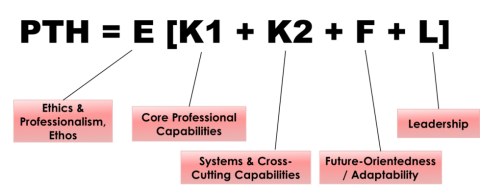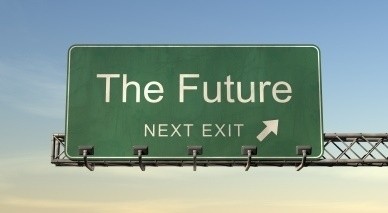I joined the National Healthcare Group (NHG), Singapore in 2010 as the administrative director overseeing graduate medical education. Just a year later I had the privilege of joining my NHG clinician educator colleagues for the HMI “A Systems Approach to Assessment in Health Professions Education” and “Leading Innovations in Health Care & Education” programs. That marked the beginning of my tremendous learning journey as part of a multi-professional, multi-disciplinary (I am an Engineer by training) team and community to build health professions education in NHG.
This inclusive, all-embracing way of working is a hallmark of our forward-thinking NHG education leaders. It is thus no surprise that in 2015, when we conceptualised a model for the product of our education and training system, we wanted a model that encompasses everybody who works in healthcare, including administrative staff, and not just frontline staff like doctors, nurses, pharmacists and allied health professionals. At a time when healthcare is in the throes of redesigning for the future, an inclusive model would, in the words of Ron Heifetz et al,, allow everyone to “communicate more effectively, minimise misunderstandings, and gain the sense of being on the same page, even while grappling with significant differences on the issues.”
Termed the Professional for Tomorrow’s Healthcare (PTH), we envision graduates from our training and education systems who are ethically-anchored, who possess not only core professional capabilities but also systems thinking and cross-cutting skills. To successfully navigate an increasingly complex healthcare system, they must also be future-oriented and display leadership abilities. We have packaged these “must-have” capabilities for the future into an equation, inspired by one devised by the British education advocate, Sir Michael Barber,

K1 = core profession-specific capabilities required to perform one’s job;
K2 = cross-cutting capabilities required to function effectively as part of a team (eg. communication skills); systems thinking and collective competence, which are increasingly important in a team-based healthcare model;
F = future-oriented thinking to adapt quickly, to innovate solutions; adaptive expertise to apply knowledge to novel or atypical problems; and
L = distributed leadership.
We presented our PTH model late last year, and are applying the framework to evaluate our current curricula and training programs. We believe that this will be an important piece of work in empowering our healthcare colleagues, present and future, to redesign healthcare for the 21st century. Are you on a similar journey? Are you developing similar models/framework? Do you have any comments or thoughts about our PTH equation? Do let me know by commenting on this blog or contacting me at yvonne_pl_ng@nhg.com.sg. And check out our NHG Education Facebook page to see what else we are doing!
Dr. Yvonne Ng

